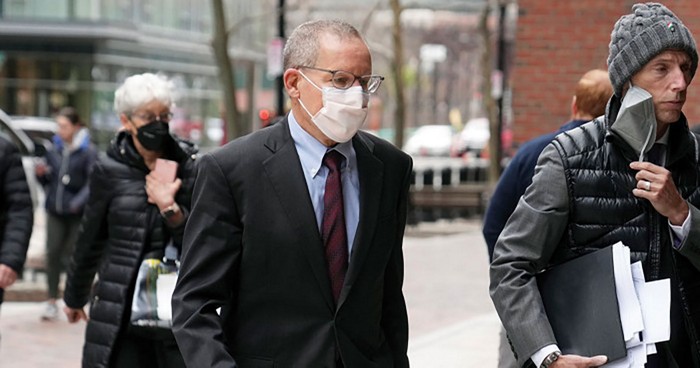Advertisement
Grab your lab coat. Let's get started
Welcome!
Welcome!
Create an account below to get 6 C&EN articles per month, receive newsletters and more - all free.
It seems this is your first time logging in online. Please enter the following information to continue.
As an ACS member you automatically get access to this site. All we need is few more details to create your reading experience.
Not you? Sign in with a different account.
Not you? Sign in with a different account.
ERROR 1
ERROR 1
ERROR 2
ERROR 2
ERROR 2
ERROR 2
ERROR 2
Password and Confirm password must match.
If you have an ACS member number, please enter it here so we can link this account to your membership. (optional)
ERROR 2
ACS values your privacy. By submitting your information, you are gaining access to C&EN and subscribing to our weekly newsletter. We use the information you provide to make your reading experience better, and we will never sell your data to third party members.
Letters to the editor
Charles Lieber
Thank you for publishing this article on Charles Lieber’s verdict (C&EN, Jan. 3, 2022, page 6). While there is clear mission creep in the investigations and prosecutions under the China Initiative of the US Department of Justice and also, unfortunately, potential racial and ethnic profiling of involved academics, I am shocked that the article simply ignores material facts inimical to US interests and violations of the law. Many academics fail to disclose on US federal grant applications their ties to foreign institutions, potentially funded by foreign governments, even though they are required to. Many of these governments are not allies of the US, and some are direct strategic competitors. Moreover, the article glosses over the obvious leverage that cash largesse from foreign state actors provide them—leverage, and the ability to blackmail and commandeer intellectual property, much of which is sensitive and can be allocated for dual-use purposes. Aren’t academics required to know about conflicts-of-interest disclosures and take ethics and code-of-conduct training?
Professor Lieber is a brilliant researcher—he could easily consult at the hourly rate of $500–$1,000 and make much more than the petty sum of $20,000, undeclared to US Customs and Border Protection upon return. By not declaring it, he broke the law. But most importantly, what leverage did the paying party gain over him? Would he care to explain? Who gives out wads of cash without a clear end goal in mind? Are foreign governments the new Santa Claus for some US academics, who are funded by the US taxpayer but have no qualms about double-dipping?
Jai A. Pathak
Arlington, Virginia
In the chemical industry, there is a strong culture of regulatory compliance in export control, international trade, and finance (among many other areas). This is especially true when doing business with the US government, where compliance and disclosure requirements are clearly articulated in contracts and grants. While I have only limited knowledge of professor Charles Lieber’s circumstances based on public reporting, it is surprising that any senior leader—in science or business—would be unaware of the implications of carrying a bag of cash through US Customs or being casual about legal representations. And would then not have considered the bigger picture of the problematic relationship and the counterparty’s intentions.
For decades, the US public research-funding enterprise has set a worldwide standard for highly successful engagement with the ingenuity and creativity of academia, creating national and global prosperity through science and innovation and promoting collaborations across borders. For its own sustainability, we should all expect policy to respond to—and help defend scientists from—organized external exploitation. Such a response is no threat to collaborations that are founded on good faith and transparency.
There is nothing to celebrate in the diminution of a luminary scientist, and hopefully professor Lieber will find ways to continue contributing to his field in the future. But among the scientists and academic research leaders with whom I’ve spoken, I sensed a thoughtful acknowledgment from many that, while we all cherish freedom of scientific inquiry and collaboration, there are exemplar issues in this case that are serious—deserving both accountability in the moment and conscientious care by the scientific community in the future.
Brett Bosley
Valencia, Pennsylvania
World Chemical Outlook
I didn’t know what I might expect when turning to the World Chemical Outlook section of the magazine (C&EN, Jan. 10/17, 2022, page 24). I was so pleased that many of the articles addressed environmental issues that are critical and need to be front and center in the realm of chemistry but also of policy as we move forward in 2022. Chemistry needs to be front and center on the world stage in so many areas that need to be addressed impacting climate change and other places where ecosystems are being impacted and resources treated as waste instead of reused.
That 9 of the 15 articles in some way address environmental issues is fantastic. Who can do it, if not chemists?
Donna Peterson
Roseville, Minnesota



Join the conversation
Contact the reporter
Submit a Letter to the Editor for publication
Engage with us on Twitter